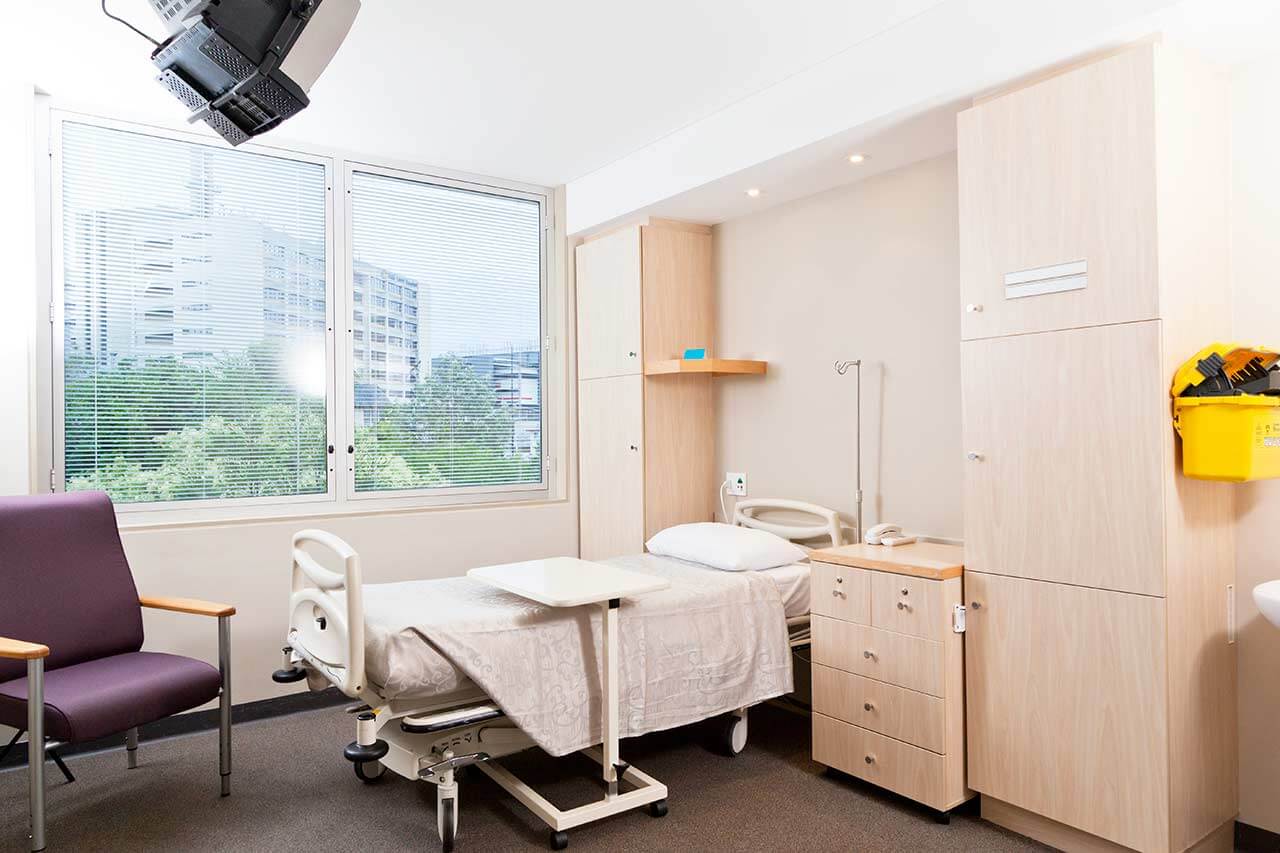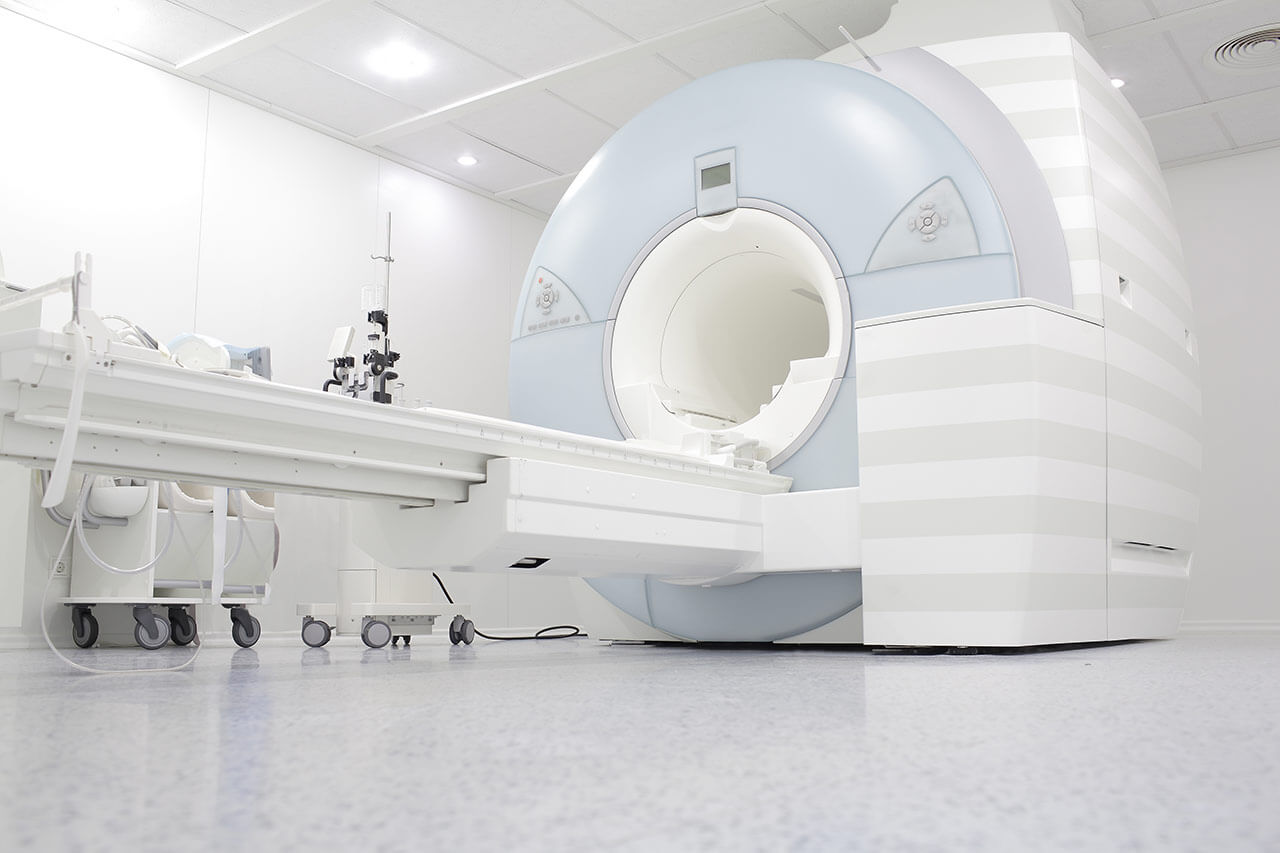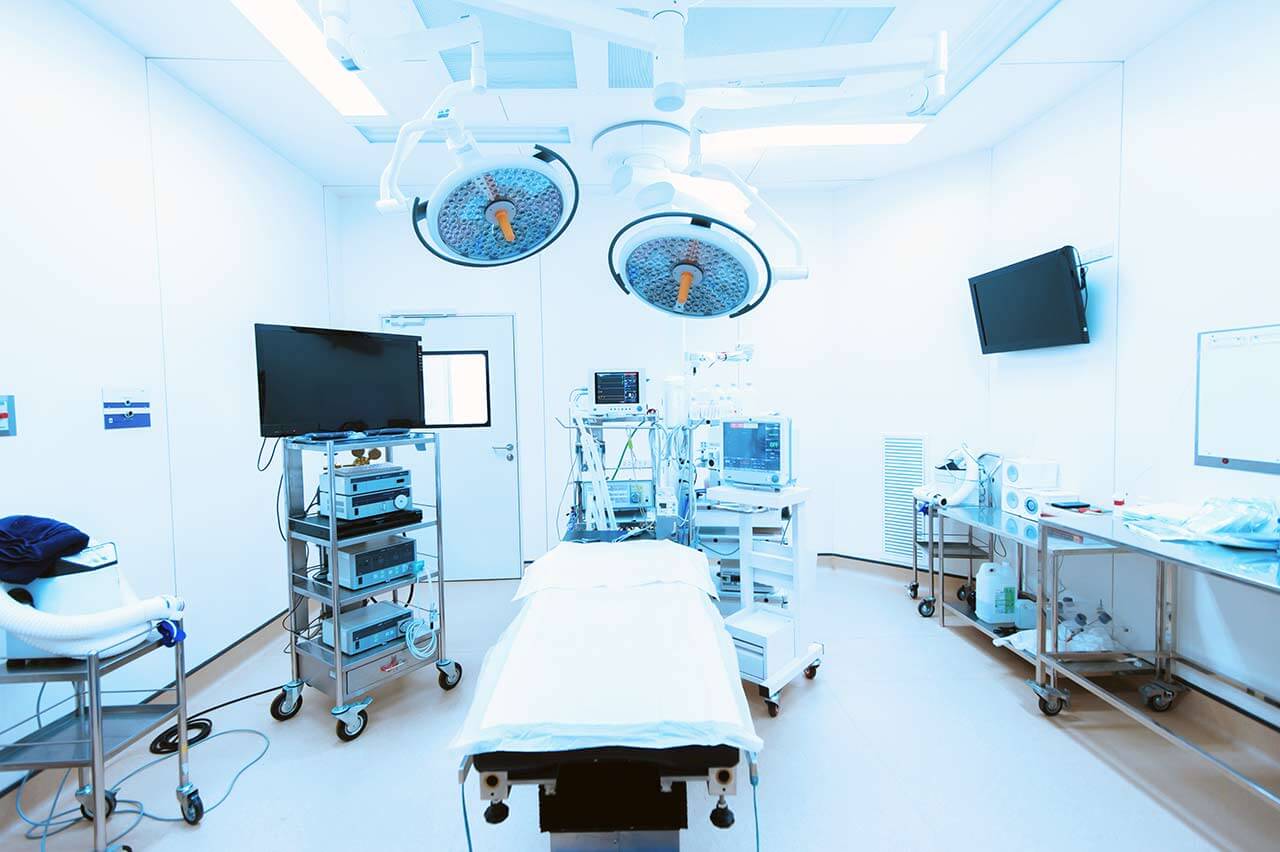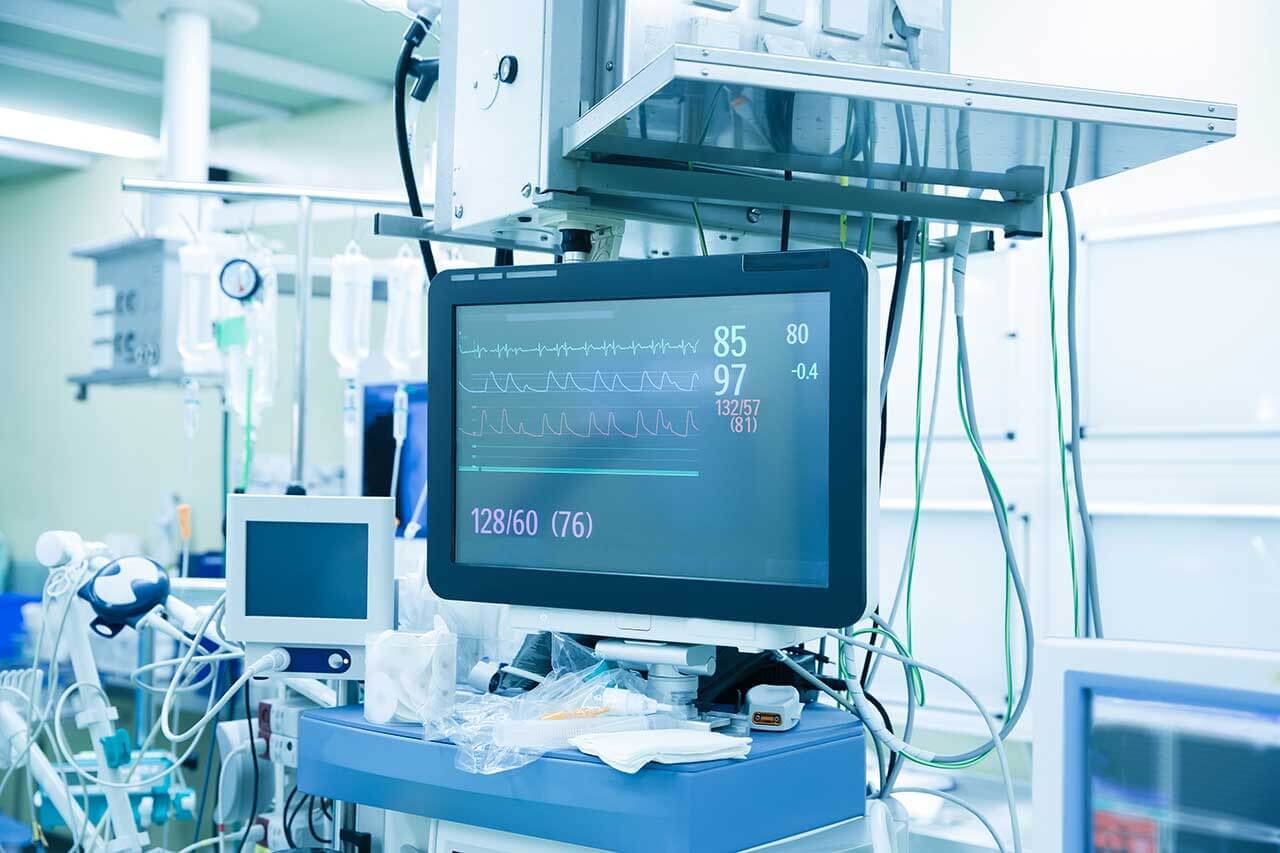
About the Department of Pediatric Oncology, Hematology, Pulmonology, Cardiology, Endocrinology, Gastroenterology, Hepatology, Infectology, Nephrology, Neurology and Epileptology at University Hospital Rechts der Isar Munich
The Department of Pediatric Oncology, Hematology, Pulmonology, Cardiology, Endocrinology, Gastroenterology, Hepatology, Infectology, Nephrology, Neurology and Epileptology at the University Hospital Rechts der Isar Munich offers the full range of medical services in all areas of its specialization. The health of young patients is in the safe hands of a large medical team, consisting of 60 highly specialized doctors and about 120 nursing staff. The specialists of the medical facility annually admit more than 5,000 inpatients, and about 1,500 children receive medical care at the day hospital. The department's doctors provide medical care to children of all age groups – from extremely premature babies weighing 500 grams to adolescents aged 18. The medical facility holds many specialized consultations, thanks to which young patients and their parents have the opportunity to receive detailed information about the diseases. During the diagnostics and treatment, doctors strictly meet the current clinical protocols and the requirements of professional societies. The department is headed by Prof. Dr. med. Julia Hauer.
The priority focus of the department's doctors is the examination and treatment of young patients with benign and malignant solid tumors, blood cancer and clotting disorders. During the therapeutic process, the specialists are guided by the recommendations of the German Society for Paediatric Oncology and Hematology (GPOH). The department's specialists most often resort to such treatment methods as chemotherapy, radiation therapy, targeted therapy, and bone marrow transplantation. Should a surgical procedure be required, the highly specialized surgeons take care of the child. Children with incurable cancers receive competent palliative care aimed at relieving pain and improving their quality of life.
The treatment of heart disease in children also occupies an important place in the department's clinical practice. The department's diagnostic rooms have state-of-the-art equipment for electrocardiography, echocardiography, 24-hour blood pressure monitoring and other examinations. It is noteworthy that the department's doctors detect some heart defects even at the stage of intrauterine development of the fetus. The most common pathologies in the field of pediatric cardiology include congenital heart defects, heart rhythm disorders (arrhythmias), fainting (syncope), and infectious cardiovascular lesions. Quite often, drug therapy and regular diagnostic examinations are enough to eliminate the pathology, but there are also cases when interventional catheter-based interventions or even open heart surgery are required. The most effective treatment method is determined on an individual basis.
The team of gastroenterologists is responsible for examining children with suspected gastrointestinal diseases and treating these pathologies when the diagnosis is confirmed. The specialists have vast experience in the treatment of chronic abdominal pain, constipation, diarrhea, food allergies, lipid metabolism disorders, acute and chronic liver diseases, pancreatitis, short bowel syndrome, inflammatory bowel disease, celiac disease, gastroesophageal reflux disease and other pathologies. The main therapeutic methods include drug therapy, diet therapy, and endoscopic procedures. The specialists always strive to use the most sparing therapeutic methods.
The department also admits children and adolescents with neurological disorders: multiple sclerosis, mitochondriopathies, neurometabolic and neurodegenerative pathologies, infantile cerebral palsy, motor and developmental disorders, stroke, spina bifida and hydrocephalus. Of particular interest is the treatment of epilepsy in young patients. To make a diagnosis, doctors conduct comprehensive diagnostics, which necessarily includes electroencephalography and magnetic resonance imaging. To deal with epileptic seizures, the department's neurologists use modern antiepileptic drugs and a ketogenic diet. If, according to the diagnostic findings, the specialists come to the conclusion that such treatment will not give the desired result, it is possible to perform vagus nerve stimulation.
The department's range of medical services includes:
- Diagnostics and treatment of cancers and hematopoietic diseases
- Solid tumors, including Ewing's sarcomas, osteosarcomas, rhabdomyosarcoma, etc.
- Leukemia
- Lymphoma
- Myelodysplastic syndrome
- Hemophagocytic lymphohistiocytosis
- Langerhans cell histiocytosis
- Hemoglobinopathies
- Immune thrombocytopenia
- Blood clotting disorders
- Diagnostics and treatment of respiratory diseases
- Chronic cough
- Bronchial asthma
- Rare congenital and acquired lung diseases
- Diagnostics and treatment of heart disease
- Congenital heart disease
- Arrhythmias
- Syncope
- Infectious cardiovascular lesions (pericarditis and endocarditis)
- Arterial hypertension
- Diagnostics and treatment of endocrine disorders
- Growth disorders
- Puberty disorders
- Phosphorus and calcium metabolism disorders
- Thyroid diseases
- Adrenal diseases
- Pituitary diseases
- Obesity
- Diabetes mellitus
- Diagnostics and treatment of infectious diseases
- Severe gastrointestinal infections
- Pneumonia
- Sepsis
- Bone infections
- Meningitis
- Purulent abscesses
- Diagnostics and treatment of gastrointestinal diseases
- Inflammatory bowel disease (Crohn's disease and ulcerative colitis)
- Coeliac disease
- Gastroesophageal reflux disease
- Lactose and fructose intolerance
- Chronic abdominal pain
- Pancreatitis
- Short bowel syndrome
- Diagnostics and treatment of liver diseases
- Acute and chronic liver diseases, including hepatitis
- Diagnostics and treatment of kidney disease
- Acute and chronic kidney failure
- Arterial hypertension caused by kidney failure
- Proteinuria
- Hematuria
- Congenital malformations of the kidneys and urinary tract
- Diagnostics and treatment of nervous system diseases
- Epilepsy
- Multiple sclerosis
- Mitochondrial diseases
- Neurometabolic and neurodegenerative diseases
- Cerebral palsy, movement and developmental disorders
- Neurovascular diseases, including stroke in children
- Spina bifida
- Hydrocephalus
- Diagnostics and treatment of other diseases in children
Curriculum vitae
Prof. Dr. med. Julia Hauer studied Human Medicine at Ludwig Maximilian University of Munich (1997 - 2004). In 2006, she defended her thesis. Habilitation in Immunology followed in 2015 at the Heinrich Heine University of Duesseldorf. During her studies, Prof. Hauer completed internships at leading hospitals – Harvard Medical School (2003), Columbia University in New York (2001) and Royal London Hospital (1998). From 2006 to 2009, she completed postdoctoral training at the Necker Hospital in Paris.
From 2004 to 2006, Dr. Julia Hauer worked as Assistant Physician at the Dr. von Hauner Children's Hospital, Ludwig Maximilian University of Munich. After an internship in France, the specialist took the position of Assistant Physician in the Department of Pediatric Oncology, Hematology and Immunology at the University Hospital Duesseldorf. After completing her residency in 2014, she became Senior Physician and Research Team Leader in the same department. In March 2017, the specialist was appointed as W2 Professor for Experimental Pediatric Hematology and Oncology in the same department. In 2018, Dr. Julia Hauer was appointed as Professor for Pediatric Oncology and Hematology at the Faculty of Medicine, University of Dresden, and Head Physician of the Department of Pediatric Oncology and Hematology at the University Hospital Carl Gustav Carus Dresden. In November 2021, the doctor became Head Physician of the Department of Pediatric Oncology, Hematology, Pulmonology, Cardiology, Endocrinology, Gastroenterology, Hepatology, Infectology, Nephrology, Neurology and Epileptology at the University Hospital Rechts der Isar Munich.
Photo of the doctor: (c) Klinikum rechts der Isar der Technischen Universität München






